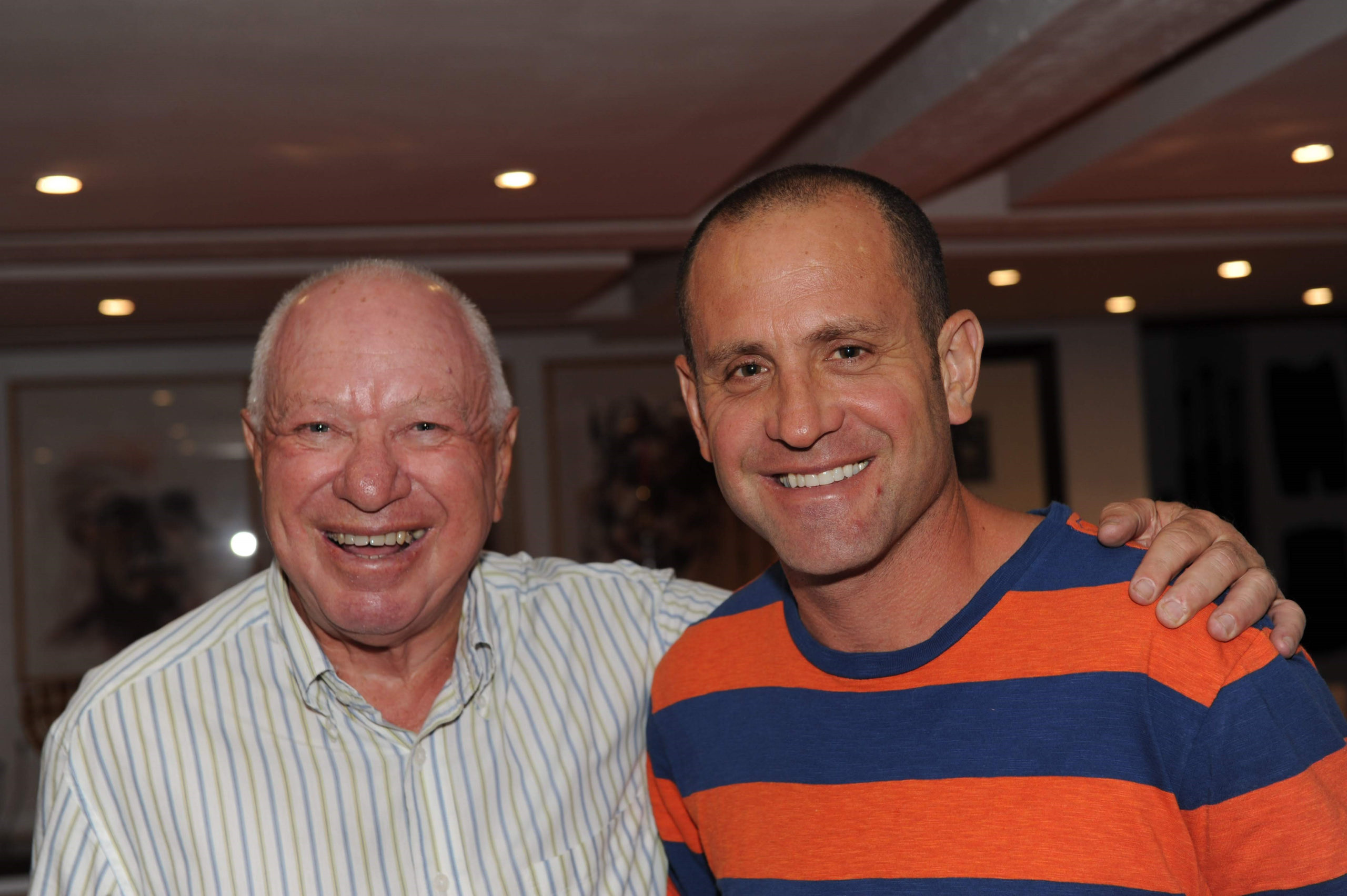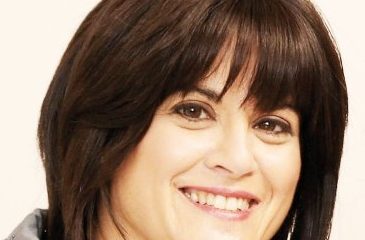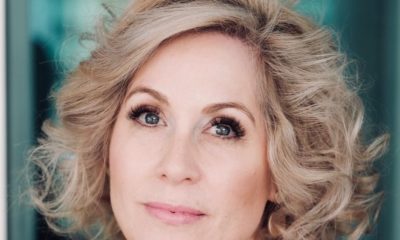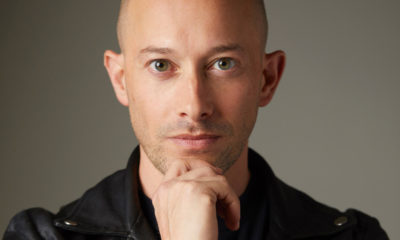
Featured Item

Comair – the end of a family airline
LIFT airline co-founder Gidon Novick felt a deep sadness when it was announced that competitor Comair would be liquidated last week. It meant the death of the airline company that was an intrinsic part of his childhood and the launchpad for his career.
Comair was the business his father ran for more than 50 years, and it was on this company that Shabbos dinner chatter focused for a lot of Novick’s life.
So, though he wasn’t upset to lose a competitor in a tough market, the end of Comair and its airlines, the British Airways franchise and kulula.com, signified the end of an era.
“I grew up in Comair,” Novick told the SA Jewish Report. “I wasn’t sad for the entity or brand, but for what my dad spent two-thirds of his life building. I felt for the people who had been there for many decades.”
Though Novick’s dad didn’t start the company, he took it to heights unimaginable for a private airline company in South Africa.
The concept of Comair was created by three South African Air Force pilots in the middle of Egypt when they were fighting for the allies in North Africa in the early 1940s.
Leon Zimmerman, AC Joubert, and JMD Martin decided to start a business that would offer pilot training, a charter service, and possibly sell the occasional aircraft.
For the first four or five decades, said Novick, Comair wasn’t just an airline but a general aviation company that included an agency for Cessna aircrafts.
Dave Novick, the son of a couple who escaped Latvia to South Africa in the 1930s, got his first job at Comair when he became a chartered accountant.
He was one of four siblings whose father battled to make ends meet as a carpenter in Doornfontein, Johannesburg.
JMD Martin, one of the founders, was Dave’s boss when he joined what was then a small aviation company in 1961 that was part of a large listed group. When Dave started, there were about 50 employees and two DC3 aircraft.
Martin Maritz joined four or five years later. The two and their families became close, even going on family holidays.
Within four years, Dave became managing director and Moritz, who had a legal background, worked closely with him as general manager. Dave and Moritz saw its potential, and decided to buy it out in 1978.
“They did a leveraged management buyout from the owners of the listed company, effectively using the strength of the company’s balance sheet to buy the company,” said Novick. In other words, they used the company’s assets to help acquire the shares as the two businessmen didn’t have the personal security to do the buyout.
“At the time, it wasn’t clear whether this was legally doable in South African company law, but it was accepted by the sellers. That is, until they changed their minds a few weeks later,” said Novick. “They decided they didn’t get the right price and this led to a stressful, drawn out court case that became a legal precedent in this particular aspect of company law.
“I was just a kid at the time, but I remember this as being a stressful time because it was either successfully buy it or be fired as executives and lose everything. The houses and cars were all company assets, which would have been lost,” Novick said.
He recalls it all being “a bit scary and leaving a lasting impression” on him. “Looking back, through this time, I learnt about resilience and how one must inevitably be prepared for struggles in business and in life.”
Ironically when Novick was studying to become a chartered accountant in the 1990s, he was faced with a question related to the Novick versus Comair case in his board exam. Clearly, it wasn’t difficult for him to respond.
The Novicks were an aviation family, always going to airshows. Each child got a chance to go the Cessna factory in the United States, and the boys all got their pilots licences as soon as they could.
Until 1991, when the domestic aviation market was deregulated, Comair was allowed to fly only secondary routes. The Novicks, as a general rule, didn’t drive out of Johannesburg, they would fly, including to the Kruger National Park (one of Comair’s routes) for weekends. They flew in DC3s – old World War II carrier planes.
After deregulation, Comair started building bigger routes, selling off smaller ones, and buying jet aircraft.
“We were conservative, being reticent to take on debt and growing slowly,” says Novick. However, the company did make some bold moves, like taking on the British Airways franchise, the first franchise for the airline outside of Europe, and later launching kulula.com, the first low-cost airline in Africa.
“My dad brokered the deal with British Airways, which strengthened the airline, and its frequent flyer programme grew 10 times in size over the first couple of years here,” he says.
A couple of years later, the low-cost airline model was created, with high density seating, no business class, with direct internet distribution. Comair jumped on it, launching kulula.com. “What you needed was a strong consumer brand because you couldn’t rely on agents to promote your product, so it needed in-your-face marketing,” he said. “It was revolutionary at the time.”
Novick had joined the company in 1998 and earned his stripes before becoming joint kulula.com chief executive with Eric Venter until 2011.
“By then (2011), the dynamics had changed and Bidvest was a major shareholder. It was time to have a single chief executive, and the board decided Eric was the guy to run it.”
Until then, Novick said, “My dad was still very much pulling the Comair strings and controlling strategy and I was running the nuts and bolts. I was interested in exploring new things, however it happened quickly, so it was traumatic.”
For Dave though, who was then chairperson of the Comair board, it was the end of a lifetime involvement with one company. “I underestimated the impact it would have on him. When I left, he left in tandem, and we sold our shares. It wasn’t just a business to him, it was his baby.”
Novick said after they left Comair, Shabbos dinners were more inclusionary and less business focused. However, many are relieved Dave, who passed away in 2019, wasn’t around to see the death of Comair.
“There’s a cycle of life and business,” said Novick. “New models come along, and businesses need to adapt.”
Novick launched his new airline, LIFT, at the end of last year, which inevitably caused pressure on other airlines.
He believes the reduction in capacity from the loss of Comair will be managed because the flying market is smaller.
“People are fortunately now travelling again for leisure, but it’s more expensive. The jury is still out whether they will resume flying for business, which was subsidising the cheaper tickets,” he said.
“The biggest crisis for us is the fuel price. A year ago, a plane would use R30 000 of fuel from Johannesburg to Cape Town, now it’s R100 000. That’s way more than half of our costs. So, it’s more expensive to fly, and fewer people can afford it.”
However, he is a firm believer that the industry will prevail and easily survive this knock.











Warren Musah
June 25, 2022 at 9:30 am
I want my refund money bloody hypocrites up to date no refund, u can’t wake up and decide to shut down operations without refunding, this is a scam